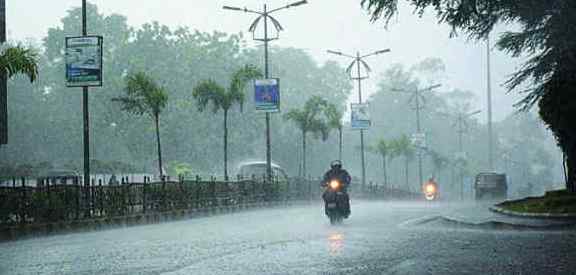Bhubaneswar: The incessant rainfall continued since Wednesday under the impact of low pressure formed over Bay of Bengal would continue to lash the state till October 26. The weather would improve October 27, forecast the regional centre of India Meteorological Department (IMD).
The IMD has issued ‘Orange warning’ to Sundargarh, Bargarh, Sambalpur, Deogarh and Keonjhar districts for Thursday. These five districts are likely to witness heavy to heavier rainfall.
Similarly, ‘Yellow warning’ has been issued to Mayurbhanj, Keonjhar, Balasore and Bhadrak for Friday. These four districts are expected to get heavy downpour.
All the Collectors have been directed to be on alert to meet any exigency arising out of heavy rainfall. Similarly, fishermen have been warned against venturing into the sea.
The Lopar-triggered rainfall started Wednesday morning. By the afternoon, the quantum of rainfall increased and some places recorded heavy rainfall and some other places recorded heavy to heavier rainfall. Due to incessant and heavy downpour, normal life in the districts like Ganjam, Puri, Gajapati and Balasore has been thrown out of gear, submerging several low-lying areas and affecting vehicle movement.
Puri recorded the highest 138.3mm average rainfall till Thursday 8am for the past 24 hours, followed by Ganjam (125.2mm), Khurda (105.7mm), Gajapati (100.6mm) and Jagatsinghpur (100.0mm). Nayagarh, Cuttack, Jajpur, Jharsuguda, Keonjhar, Sambalpur, Sundargarh, Hirakud, Talcher, Bolangir, Phulbani, Titlagarh, Malkangiri and Sonepur are also learnt to have experienced heavy downpour.
At the same time, Odisha University of Agriculture and Technology and Directorate of Agriculture and Food Production have advised the farmers of the districts to take precautionary measures to protect their crops from getting damaged.
The farmers have been asked to harvest their early-ripening kind of paddy and transfer them to safer places. They have been asked to dig a canal to let the excess water from their paddy fields flow out of their lands. They have been directed to plant the fallen vegetable plants straight with the help of soil and sticks.
Paddy, vegetable and pulses are likely to have insects after the rain is over. So the farmers have been asked to take precautionary measures to avoid the menace.
PNN
